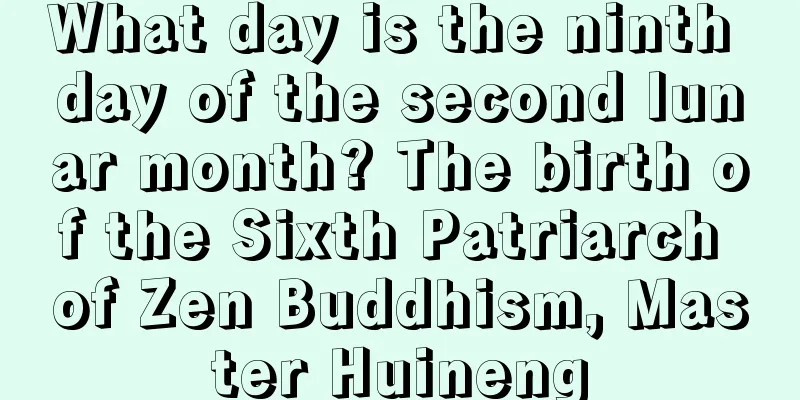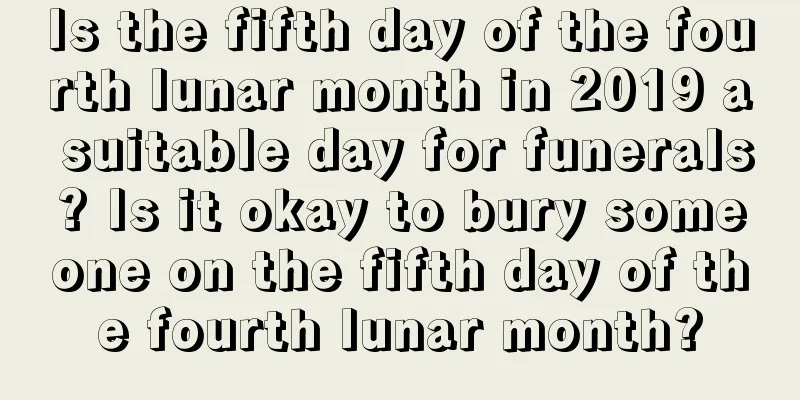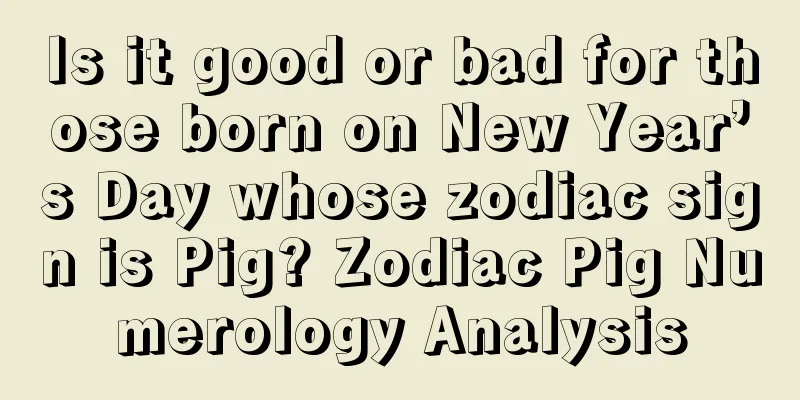What day is the ninth day of the second lunar month? The birth of the Sixth Patriarch of Zen Buddhism, Master Huineng

|
Introduction: Do you know what day is the ninth day of the second lunar month? Some say that the ninth day of the second lunar month is the birthday of Master Huineng, the sixth patriarch of Chinese Zen Buddhism. Who is this master? Is February 9th really his birthday? Let’s take a look at the specific content! February is such a beautiful month, when everything comes back to life and welcomes spring. Let us have a deeper understanding of every detail of the second month of the lunar calendar. Huineng (638-713), the sixth patriarch of Chinese Zen Buddhism. Huineng lost his father at a young age and his family was poor, so he relied on selling firewood to support his mother. One day, when he was selling firewood, he heard a customer reading the Diamond Sutra and was inspired. So he went to Dongshan in Huangmei. It was the second year of Xianheng. When Master Hongren saw it, he recognized it silently and later passed on his robe and Dharma to him. After Huineng obtained the Dharma, he lived in seclusion among a group of hunters for fifteen years, and preached to the hunters at will. The hunters often asked him to guard the nets and release all living creatures he saw. At mealtimes, he would put vegetables in the pot of boiling meat, saying, "Just eat the vegetables around the meat." One day he thought, "It is time to spread the Dharma and cannot escape forever." On the eighth day of the first lunar month in the year of Bingzi in Yifeng, he went to the Faxing Temple in Nanhai. At dusk, the wind blew the flags of the stupa, and two monks argued with each other. One said that the flags were moving, and the other said that the wind was moving. They argued back and forth. Huineng said, "It is the wind that is moving the flags, it is the mind that is moving." Yinzong was surprised, and the next day he invited the master into his room to ask him about the meaning of the wind flags. Huineng explained the reason in detail. Yinzong asked, "The practitioner must not be an ordinary person, so who is your master?" Huineng said nothing more and directly narrated the reason why he obtained the Dharma. Yinzong then performed the ceremony of a disciple and requested to be taught the essentials of Zen. He told the four groups of people, "Yinzong was a mortal man, but now he has met a bodhisattva in the flesh." He then asked Huineng to show him the robe that had been passed down to him, so that everyone could see and pay homage to it. On the fifteenth day of the first lunar month, he gathered together many famous and virtuous people to shave their heads. On February 8th, he received full ordination from Master Zhiguang of Fasheng Temple. The ordination platform was built by Tripitaka Kumarajiva of Liu Song Dynasty. Tripitaka recorded: "In the future, a Bodhisattva with a flesh and blood body will receive ordination at this platform." Tripitaka Zhendi of Liang Dynasty planted two Bodhi trees on the side of the platform and said to the crowd: "One hundred and twenty years later, a great enlightened person will preach the supreme vehicle under this tree and save countless people." After Huineng received the full ordination, he opened the Dongshan Dharma under this tree. Master Huineng's Zen method is based on concentration and wisdom, emphasizing "seeing the purity of one's own nature, cultivating one's own Dharma body, practicing Buddhahood, and achieving Buddhahood by oneself." He believed that awareness is inherent and troubles are non-existent. Direct realization of consciousness is sudden enlightenment. He said that one's mind should not seek out good or evil, nor should it sink into emptiness and silence. Instead, one should learn widely and gain extensive knowledge, recognize one's own original mind, and understand the principles of the Buddhas. Therefore, he does not consider sitting quietly and concentrating the mind as the only way to achieve Zen. He believes that one can experience the state of Zen by walking, standing, sitting or lying down at all times. Huineng also said, "First establish no-thought as the principle," and "Buddhism is in the world and is inseparable from worldly awareness." The so-called no-thought means that although one can see, hear, and know, the mind is always empty and quiet. "To take refuge in one's own nature is to take refuge in the true Buddha. To take refuge in oneself means to get rid of the unwholesome mind, jealousy, flattery, selfishness, deceit, contempt for others, wrong views, arrogance, and all the bad deeds in one's nature. One should always see one's own faults and not talk about others' likes and dislikes. This is taking refuge in oneself. One should always be humble and show respect to all. This is to see the nature clearly and have no more obstacles. This is taking refuge in oneself." Huineng laid the theoretical foundation for the development of Zen Buddhism and had a great influence on the establishment of various Zen masters' schools later. After his death, his disciples inherited the Zen teachings, forming the Southern and Northern schools. The Northern School is the school of Heze Shenhui, and is called the Heze School. The Southern School is represented by the Hongzhou School under Nanyue Huairang and the Shitou School of Qingyuan Xingsi and Shitou Xiqian. Under the promotion of the Northern School Heze School, Huineng's Zen replaced the original Northern School Shenxiu's school and became the orthodox Zen school. However, the Heze School declined in the late Tang Dynasty due to lack of successors. It was the Southern School that had the greatest influence on later generations. The Southern School later formed five sects: the Linji Sect in Hebei, the Caodong Sect in Jiangxi, the Weiyang Sect in Hunan, the Yunmen Sect in Guangdong, and the Fayan Sect in Jiangsu, which is called "one flower with five petals". Later, the Fayan School spread to Thailand and Korea; the Yunmen School and the Linji School spread even further to Europe and the United States. In China and Japan, the Rinzai and Soto sects are the most prosperous. Master Huineng had many disciples. The Jingde Chuandeng Lu and the Chuanfa Zhengzong Ji both record that there were 43 successors to his teachings. The Platform Sutra says that there were ten disciples, while the Zutangji lists eight. Among them, the most famous ones in later generations are Qingyuan Xingsi, Nanyue Huairang, Heze Shenhui, Nanyang Huizhong and Yongjia Xuanjue. After they obtained the Dharma, they each established their own schools, and the Qingyuan and Nanyue schools were the most prosperous. After several generations under Nanyue, the Dharma evolved into the Linji and Weiyang schools. After several generations under Qingyuan, the Dharma evolved into the Caodong, Yunmen and Fayan schools, forming the five schools of Zen Buddhism. The dates of Master Huineng's ordination, ordination, and death are all clearly recorded in relevant historical books, but there are few records about his birthday. The "Jiatai Pudeng Lu" states that he was "born at midnight on the eighth day of the second month of the twelfth year of the Zhengguan (Zhenguan) period." Since "midnight" on the eighth day generally refers to the evening rather than the early morning, the master's birthday was on the ninth day of the second month. Today, monks and lay people regard February 9th as the master’s birthday, generally based on the "Gyatai Pudeng Lu". Summary: Through the introduction in the above article, I believe everyone has a basic understanding of the special significance of the ninth day of the second lunar month. I hope you like this article! You have finished reading this article. For more exciting content, please check out the special topic of the second month of the lunar calendar! |
<<: What is the ninth day of the second lunar month in 2017? Can we get married?
>>: Is it good for people born on the eighth day of the second lunar month? How is your fortune?
Recommend
Do I need to be quarantined if I visit graves outside my hometown during the Qingming Festival in 2021? What are the customs of ancestor worship and tomb sweeping during Qingming Festival?
It rains heavily during the Qingming Festival, whi...
Where is the God of Happiness on October 19th of the lunar calendar 2019? What does the God of Happiness mean?
We know that the God of Joy is a lucky god and go...
Is September 23rd of the lunar calendar in 2021 a good day for a haircut? Is it okay not to have a haircut for a long time?
Although a person's hairstyle cannot determine...
Is it a good time to install the bed on the 24th day of the winter month in 2019? How to choose an auspicious day for installing the bed?
Introduction: Setting up the bed is also an import...
Analysis of the day pillar and lucky gods for girls born on May 25, 2020!
Introduction: Due to the different specific times ...
Is it a good idea to open a business on September 11, 2017 in the lunar calendar? Is it suitable for a new company to open?
There are good and bad days, life has its bittern...
Is it not appropriate to hold a funeral on the day before the winter solstice in 2020? Does the winter solstice start with Ren?
Introduction: Generally speaking, an auspicious da...
Is September 18th of the lunar calendar 2020 a good day? Is it suitable for travel?
It is also necessary to check the almanac when tra...
What are the do's and don'ts in the lunar calendar for the new year of 2022, and what are the hexagrams?
The first month of the year, also known as the Dua...
Is the fourth day of the seventh lunar month in 2018 a good date in the lunar calendar? Is it suitable for a haircut?
Introduction: In traditional Chinese culture, hair...
Can I go out (travel far) on the tenth day of the twelfth lunar month in 2017?
In the twelfth lunar month, we should get together...
Is the 19th day of the first lunar month in 2018 suitable for opening a business?
Opening a business is a big deal, and choosing an ...
Is it a good time to travel on December 21st of the lunar calendar in 2018? How good or bad?
It is almost the Spring Festival now, and basicall...
Is the fate of people born in the twelfth month of the lunar calendar good or bad? Which month is the hardest for people born in the Year of the Rabbit?
People born in the Year of the Rabbit are gentle, ...
Analysis of the fate of girls born on the ninth day of the third lunar month in 2021
There is a certain relationship between a girl'...









